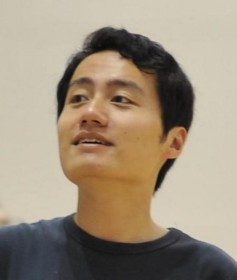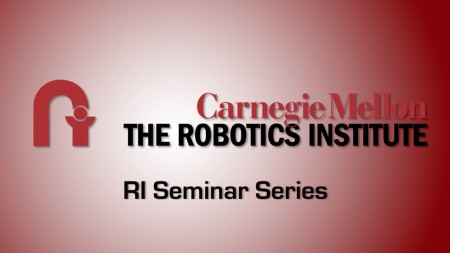Seminar
Beyond Geometric Path Planning: Paradigms and algorithms for modern robotics
Kris Hauser Associate Professor, Duke University Abstract The development of fast randomized algorithms for geometric path planning – computing collision-free paths for high dimensional systems – was a major achievement in the field of motion planning in the 2000's. But since then, recent advances in affordable robot sensors, actuators, and systems have changed the robotics [...]
Me Car, You Human: Understanding Human Activity for Intelligent Collaborative Robotic Vehicles
Eshed Ohn-Bar Postdoctoral Researcher, University of California, San Diego Abstract The goal of my research is to develop human-centered algorithms for intelligent and autonomous systems. The research emphasizes modeling the perception, intent, and behavior of humans inside and around a vehicle. Over a decade has passed since the DARPA Grand Challenges, and the way in [...]
Pathway Toward Vision Restoration, Artificial Vision, Artificial Retina, Optogenetics
José Alain Sahel, MD Professor & Chairman, Department of Ophthalmology, University of Pittsburgh, School of Medicine Abstract Progress in ophthalmology over the past decade moved preclinical data to clinical proof-of-concept studies bringing innovative therapeutic strategies to the market. Diseases such as retinitis pigmentosa (RP) and age-related macular degeneration (AMD) destroy photoreceptors but leave intact and [...]
Visual SLAM with Semantic Scene Understanding
Event Location: NSH 1507Bio: Shichao Yang is a Ph.D. student in the Mechanical Engineering at Carnegie Mellon University, advised by Prof. Sebastian Scherer in the Robotics Institute. He received a B.S in Mechanical Engineering from Shanghai Jiao Tong University in 2013. His research focuses on visual simultaneous localization and mapping (SLAM) combined with semantic scene [...]
Towards Agile Flight of Vision-controlled Micro Flying Robots: from Active Vision to Event-based Vision
Davide Scaramuzza Assistant Professor of Robotics, University of Zurich Abstract Autonomous quadrotors will soon play a major role in search-and-rescue and remote-inspection missions, where a fast response is crucial. Quadrotors have the potential to navigate quickly through unstructured environments, enter and exit buildings through narrow gaps, and fly through collapsed buildings. However, their speed and [...]
e-Intangible Heritage
Event Location: NSH 1305Bio: Dr. Katsushi Ikeuchi is a Principal Researcher of Microsoft Research Asia, stationed at Microsoft Redmond campus. He received a Ph.D. degree in Information Engineering from the University of Tokyo in 1978. After working at Artificial Intelligence Lab of Massachusetts Institute of Technology as a pos-doc fellows for three years, Electrotechnical Lab [...]
Katsushi Ikeuchi : e-Intangible Heritage
Katsushi Ikeuchi Principal Researcher, Microsoft Research Asia Abstract Tangible heritage, such as temples and statues, is disappearing day-by-day due to human and natural disaster. In e-tangible heritage, such as folk dances, local songs, and dialects, has the same story due to lack of inheritors and mixing cultures. We have been developing methods to preserve such [...]
Attention and Activities in First Person Vision
Event Location: Newell Simon Hall 1507Bio: Yin Li is currently a doctoral candidate in the School of Interactive Computing at the Georgia Institute of Technology. His research interests lie at the intersection of computer vision and mobile health. Specifically, he creates methods and systems to automatically analyze first person videos, known as First Person Vision [...]
TBA: Yin Li
Embodied learning for visual recognition
Event Location: Gates 7101Bio: Dinesh Jayaraman is a PhD candidate in Kristen Grauman's group at UT Austin. His research interests are broadly in visual recognition and machine learning. In the last few years, Dinesh has worked on visual learning and active recognition in embodied agents, unsupervised representation learning from unlabeled video, visual attribute prediction, and [...]









